Year 3 Teaching Resources
Explore printable worksheets, digital activities, games and more Year 3 resources, all aligned to the Australian curriculum! The teacher-created resources have all been designed with primary teachers and students in mind to meet the special needs of children as they transition into the middle years of their primary school education.
Carefully curated and thoroughly reviewed by the expert teachers of the Teach Starter team to ensure they're classroom-ready, our Year 3 resources can save you lesson planning time this school year with editable and differentiated options at the ready.
Teach Starter’s Year 3 resources utilise a vast array of resource types and have something for every learning area. Here's just a taste of what you'll find for your classroom!
- Spelling words and English worksheets
- Fractions activities and Maths worksheets
- Social and emotional learning activities
- Narrative writing stimuli
- Language conventions practice
- And so much more!
Are you new to teaching Year 3? Here's a look at what this year of primary school is all about!
What Is Year 3 in Australia?
Year 3 sits right in the middle of primary school for most students in Australia as the fourth year of compulsory education.
How Old Are Kids in Year 3?
The exact age of students will vary slightly by state (and birthday!), but most children in your Year 3 class will be 8 to 9 years old.
What Do Students Learn in Year 3?
Year 3 is a big one for Australian students. Many will sit the NAPLAN tests, and more than a few will hit double digits before the year is through. This is a big year for Maths between the introduction of more complex fractions and formal multiplication, as well as even more skill-building in other learning areas.
Exactly what they're expected to learn will depend to some degree on the state or territory where you are teaching, but here's a look at what your students can expect to encounter in the key areas of the curriculum!
English
Year 3 students continue to develop their reading, writing, speaking, and listening skills in their English lessons. Reading will involve more complex texts, including longer novels, non-fiction texts, and poetry.
Students will also be expected to analyse these texts more deeply, examining themes, character development, and literary techniques. Comprehension skill-building will require deeper analysis of texts and drawing inferences from what is read.
While Year 2 instruction focuses on basic writing skills such as sentence structure and punctuation, this older group of students will move toward more advanced writing skills such as paragraphing, using descriptive language, and organising ideas in a logical way.
Grammar and spelling will also become a greater focus this year, with an emphasis on understanding and applying more complex grammar rules and spelling patterns.
Maths
Fractions feature front and centre of the Year 3 Maths curriculum. Students will learn to identify, compare, and order unit fractions (those being fractions with a numerator of 1), as well as use them in simple problem-solving contexts.
We already alluded to this being a big year for multiplication, and is it ever! Year 3 students learn the basic multiplication facts — such as 2 x 2 = 4 and 3 x 3 = 9 — and they begin to use these facts to solve multiplication and division problems. They also learn to interpret and create simple multiplication and division problems.
Students will have the chance to build upon their understanding of measurement concepts from Year 2, including length, mass, and capacity. They'll learn to measure and estimate using standard units, plus how to compare and order measurements.
Maths students will expand their knowledge of 2D shapes this year, and they will begin to learn about three-dimensional shapes and their properties.
Place value is still a big part of maths, of course. Year 3 students expand their understanding of place value to include numbers up to 10,000, and they learn to read, write, and compare four-digit numbers. They also learn to use place value to solve addition and subtraction problems.
Science
Science instruction in Year 3 is more focused on building a deeper understanding of scientific concepts and their applications, as compared to Year 2. It also emphasises the development of scientific inquiry skills that will help kids become more proficient in conducting scientific investigations and communicating their findings.
Students in Year 3 learn to ask questions, plan and conduct investigations, collect and record data, and communicate their findings as part of their development of science inquiry skills. They spend a portion of the year learning about the characteristics of living things, including plants and animals. Year 3 students will have the chance to explore the life cycles of plants and animals, as well as learning about the needs of living things and their habitats.
While they're learning about things that live on Earth, they're also learning about the planet itself, exploring geological features such as rocks, soil, and minerals. They also explore heat energy and how it can be transferred from one object to another.
Last, but certainly not least, Year 3 students learn about the properties and states of matter, including solids and liquids (gasses are explored later on in primary school).
Humanities and Social Sciences
Building on the foundation set in Year 2, Year 3 HAAS lessons build a deeper understanding of historical events and concepts, as well as exploring the social and economic systems that underpin Australian society.
Students learn about the historical events, people, and places that have shaped Australia's history. They explore the concept of change and continuity over time and learn to use historical sources to investigate the past. Students also study significant cultural events celebrated in our country and how they contribute to Australia's diversity and identity.
Geography instruction will guide students as they learn about the physical and cultural characteristics of places and regions. They'll learn more about the representation of Australia as states and territories, and as Countries/Places of First Nations Australians. Students will also begin exploring Australia's neighbours such as New Zealand, Papua New Guinea, and Indonesia.
Civics instruction sees Year 3 students strengthening their understanding of what it means to live in a democratic society. They will draw upon their own personal experiences to examine why rules are important and to discuss how they can be active participants in the communities to which they belong.
Health and Physical Education
With their bodies rapidly changing, Year 3 students learn about the factors that influence their health and wellbeing, including the importance of good nutrition, hygiene, and sleep. They also learn about social and emotional health, including how to manage their feelings, develop positive relationships, and make safe and healthy choices.
In Year 3, there are a number of different types of safety on tap in lessons, including road safety, water safety, and personal safety. They develop an understanding of risk and learn strategies for staying safe in different situations.
Year 3 students also learn about the importance of being active and informed citizens in their community. They learn about the benefits of volunteering and begin to develop an understanding of the responsibilities and rights of individuals in society.
The Arts
In Year 3, students develop more advanced skills in drawing, painting, and other visual arts techniques. This includes studying the elements of art — such as line, shape, colour, and texture — and beginning to use these to create more complex artworks.
In music class, these children are learning all about musical notation and how to read and write simple music, while drama instruction explores different forms of drama, including role-playing, improvisation, and scripted performance. Students get the chance to learn about the elements of drama, such as character, plot, and setting, and begin to use these to create their own dramatic works.
- Free Plan
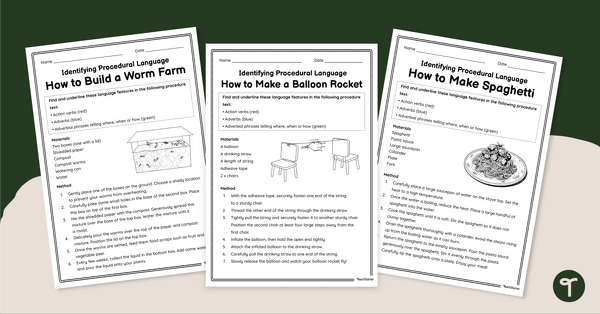
Identifying Procedural Language Worksheets
Help your students identify procedural language with this set of three worksheets.
- Free Plan
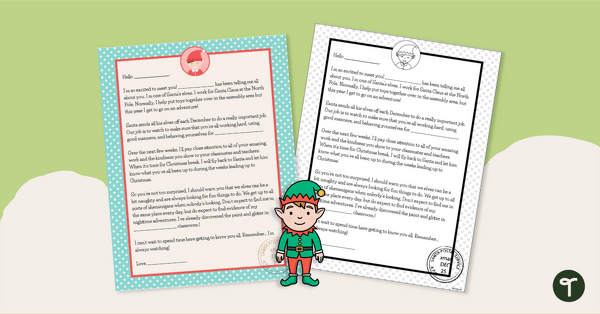
Editable Classroom Elf Letter Template
Customise a classroom elf letter to introduce your magical classroom elf!
- Plus Plan
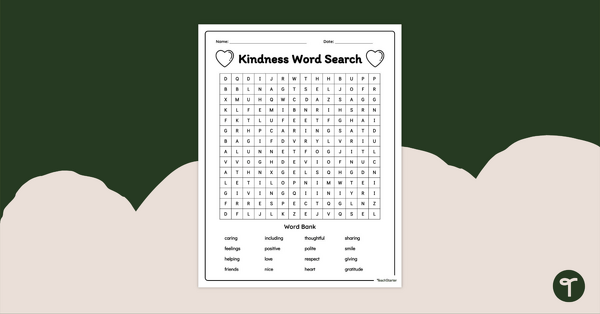
Kindness Word Search
Download a printable word search about kindness to explore this important aspect of social awareness with your students.
- Free Plan
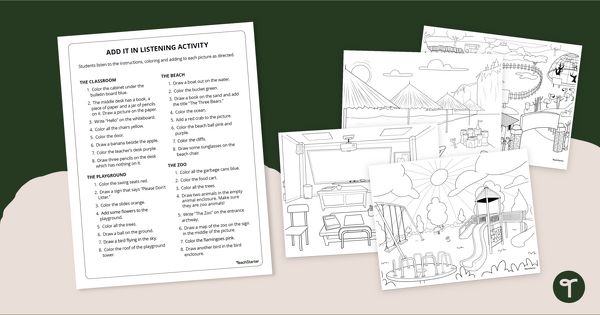
Add It In Listening Activity Bundle
Practise following directions to colour and draw pictures with a free printable listening activity worksheet pack.
- Plus Plan
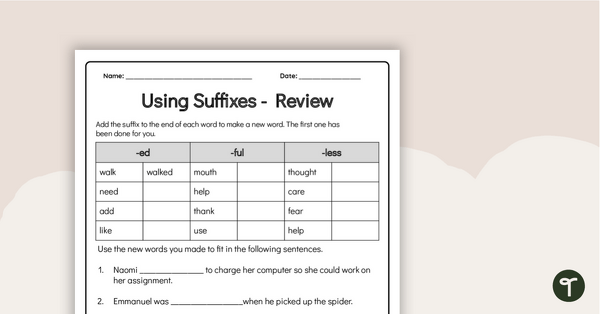
Using Suffixes - Grammar Worksheet
Review concepts related to suffixes with a printable grammar worksheet.
- Free Plan
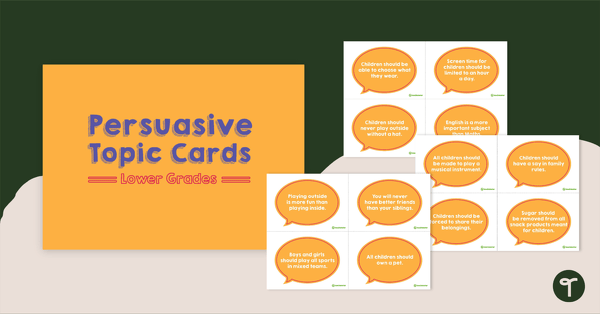
Persuasive Topic Cards - Lower Grades
A set of persuasive topic cards for lower grades.
- Free Plan
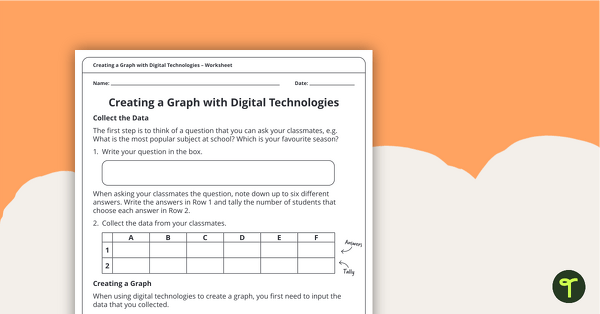
Creating a Graph Using Digital Technologies
A worksheet that supports students when collecting initial data and creating a digital graph.
- Plus Plan
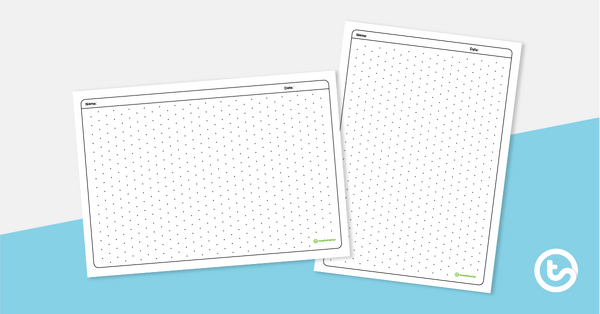
Isometric Dot Paper
A set of isometric dot paper sheets.
- Plus Plan
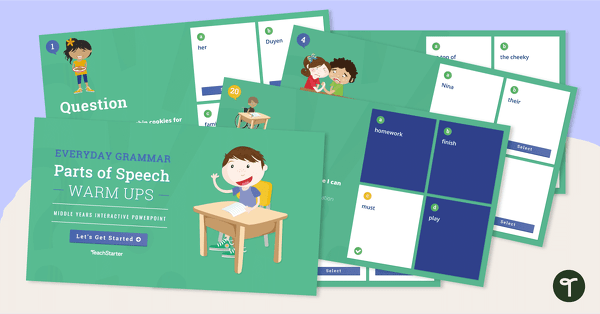
Everyday Grammar Parts of Speech Warm Ups - Middle Years Interactive PowerPoint
Review nouns, verbs, adjectives and adverbs with this 44-slide interactive parts of speech PowerPoint lesson.
- Plus Plan
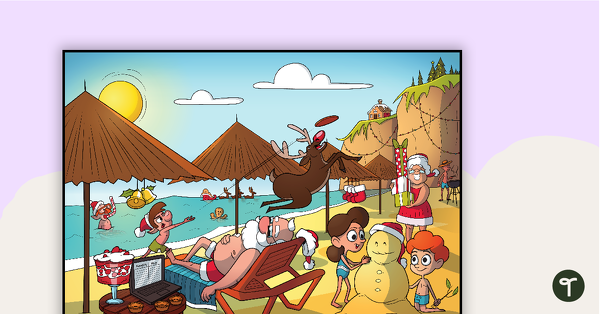
Summer Christmas Image and Task Cards
Christmas inspired summer image with task cards.
- Plus Plan
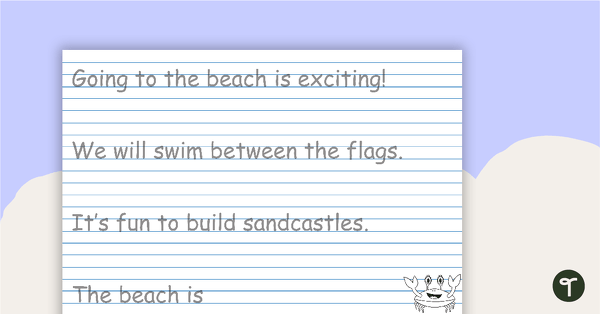
Handwriting Sheets - Theme Pages 1
Ten themed handwriting sheets with your choice of fonts.
- Plus Plan
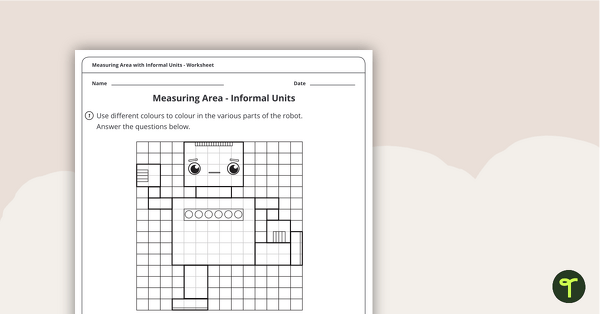
Measuring the Area of a Robot with Informal Units Worksheet
A worksheet to use when measuring area with informal square units.
- Free Plan
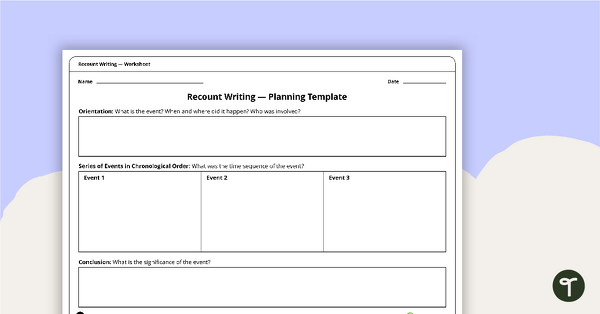
Recount Writing Planning Template
A template for students to use when planning a recount.
- Plus Plan
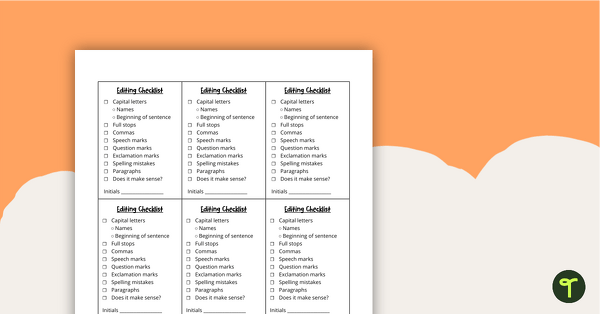
Writing Editing Checklist
Get your students using this editing checklist so that no mistake gets left behind!
- Plus Plan
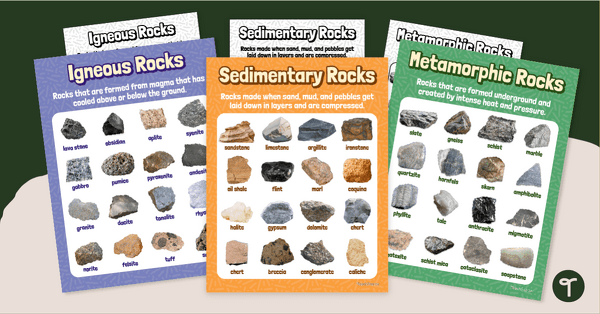
Rock Identification Chart Pack
Download a Rock Identification Chart to help your students identify examples of sedimentary, igneous, and metamorphic rock.
- Plus Plan
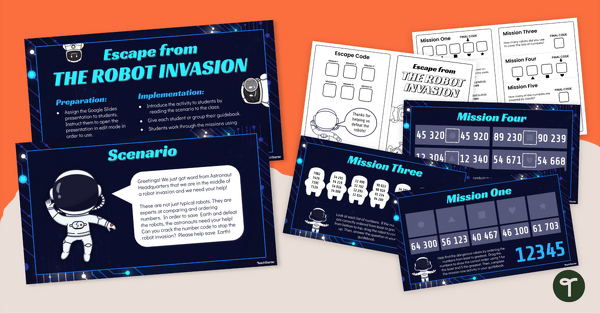
Comparing and Ordering Numbers Game — Escape the Robot Invasion!
Play our comparing and ordering numbers game with your students to engage and educate at the same time.
- Plus Plan
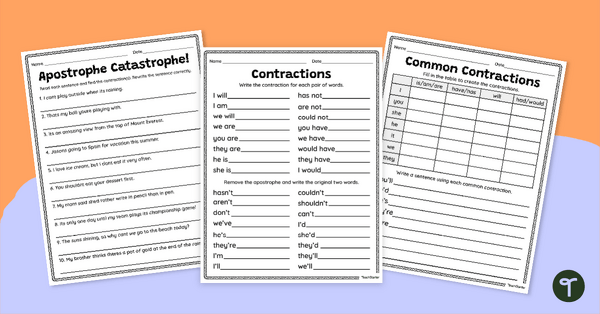
Apostrophes of Contraction Worksheets
Learn about the apostrophe of contractions with this set of worksheets.
- Plus Plan
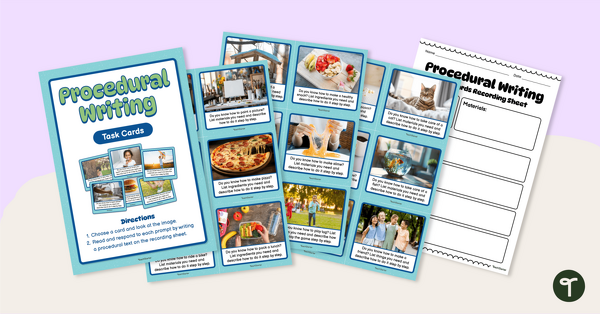
Procedural Writing Prompt Task Cards
Need some procedural writing ideas? Download these task cards to use as a writing activity during your procedure writing unit.
- Plus Plan
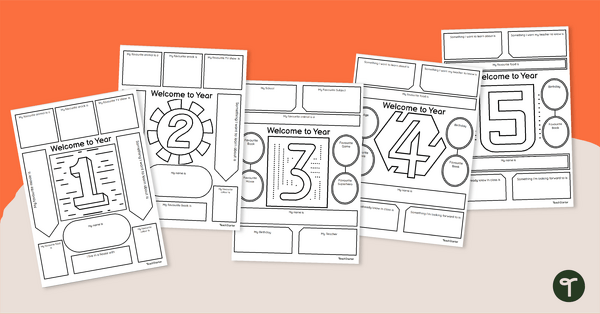
All About Myself Template - Welcome to Year 1-6
Use this printable All About Myself template to engage your students on the first day of school.
- Plus Plan
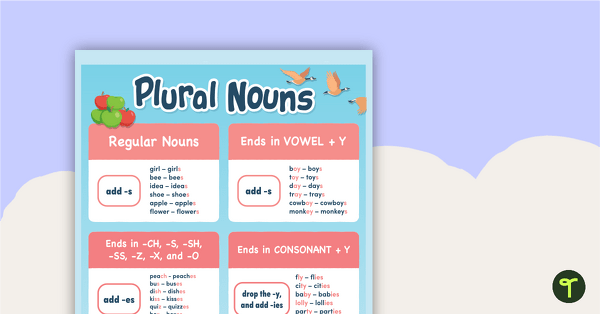
Rules for Plurals - s, es, ies, ves
Display the different rules for plurals with a printable plural noun anchor chart.
- Plus Plan
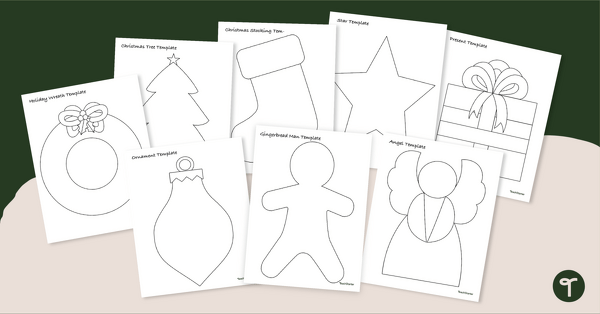
Christmas Templates - Printable Cut-Outs
Get crafty this holiday season with a set of eight Christmas outline templates.
- Plus Plan
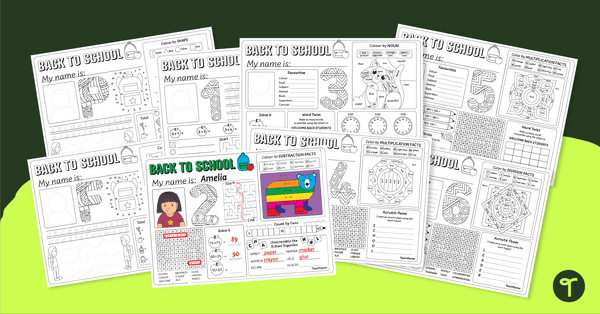
Back to School Activity Mats - All Year Levels
Use these back-to-school activity mats as your first day of school warm-up activity during morning arrival.
- Free Plan
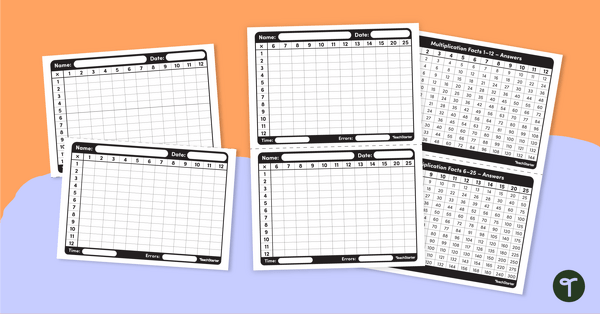
Multiplication Grid – Worksheet
A simple multiplication facts grid for students to practise their times tables.
- Plus Plan
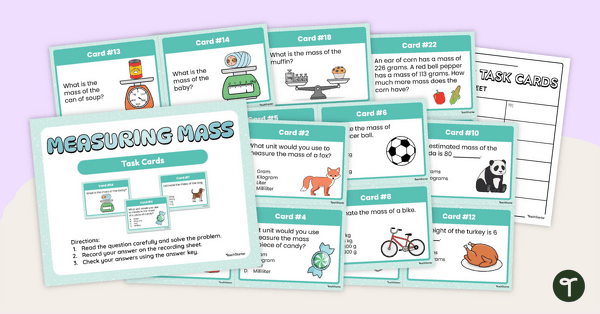
Measuring Mass Task Cards
Explore estimation and measuring mass with this set of 24 word problem task cards.
- Plus Plan
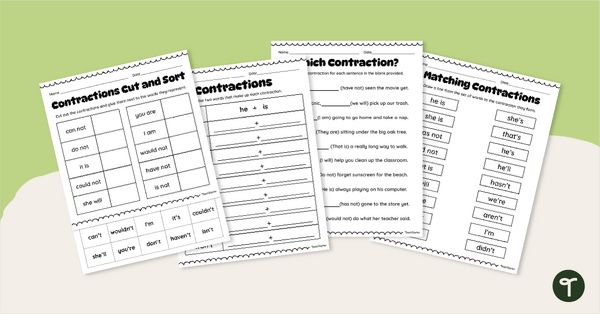
Contractions Worksheet Pack
Help students learn more about contractions with this contraction worksheet pack.
- Plus Plan
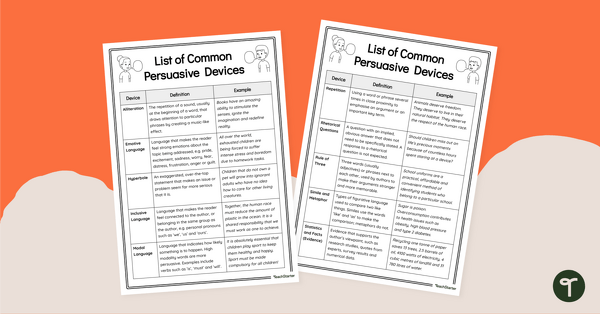
List of Persuasive Devices
Download this list of persuasive devices for your students to refer to when writing a persuasive text.
- Plus Plan
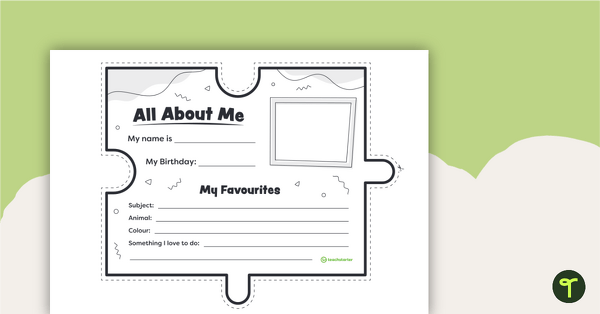
All About Me Puzzle Piece Template
Use this All About Me puzzle piece template for the first day of school to help students get to know one another.
- Plus Plan
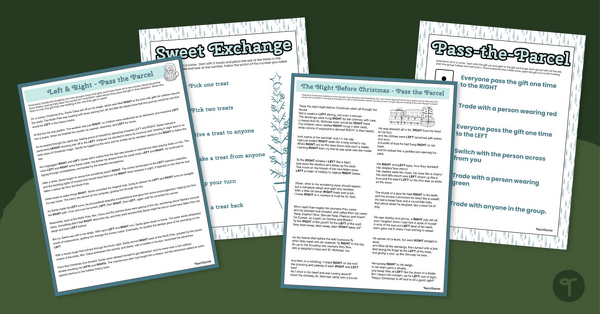
Christmas Pass The Parcel
Play ‘Pass the Parcel’ with your students for a fun twist to the traditional classroom Christmas gift exchange!
- Plus Plan
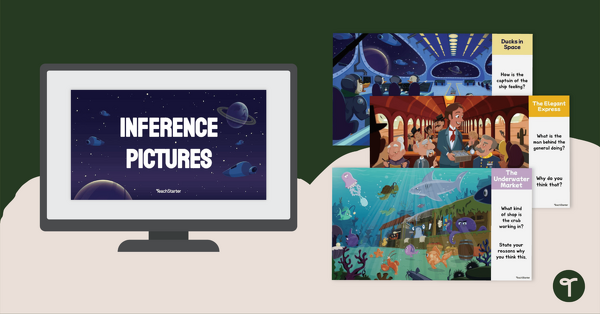
Inference Pictures – Digital Question Pack
Download this set of captivating pictures and thought-provoking questions designed to challenge students’ inference-making abilities.
- Free Plan
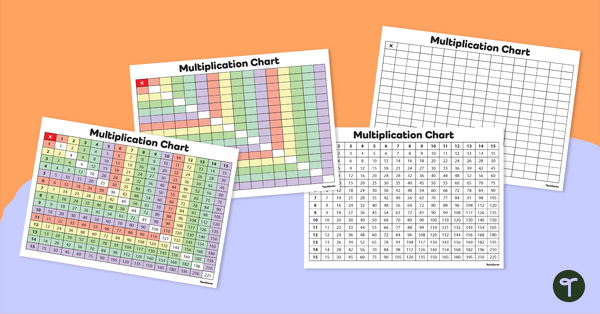
Multiplication Chart
Print a handy multiplication chart for your students — it's free for teachers!
- Plus Plan
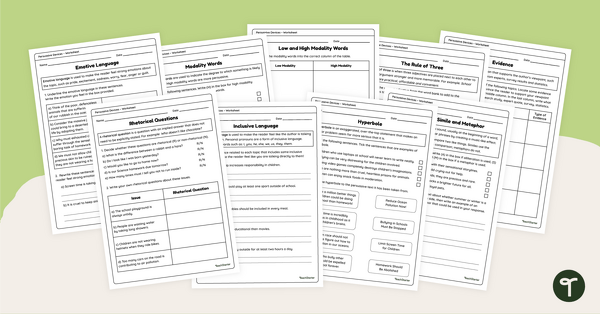
Persuasive Devices Worksheet Pack
Explore persuasive language techniques with your students using this nine-page worksheet pack perfect for your persuasive writing unit.
- Plus Plan
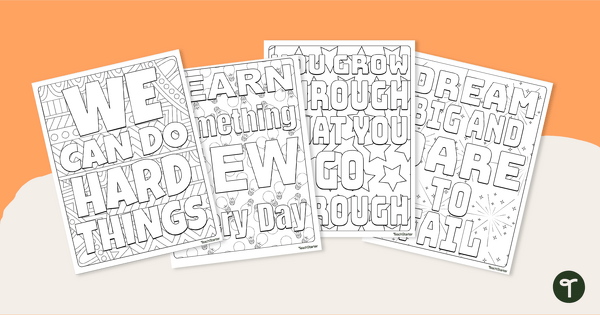
Growth Mindset Colouring Pages
Inspire creativity and encourage your students to think positively with a set of growth mindset colouring pages.